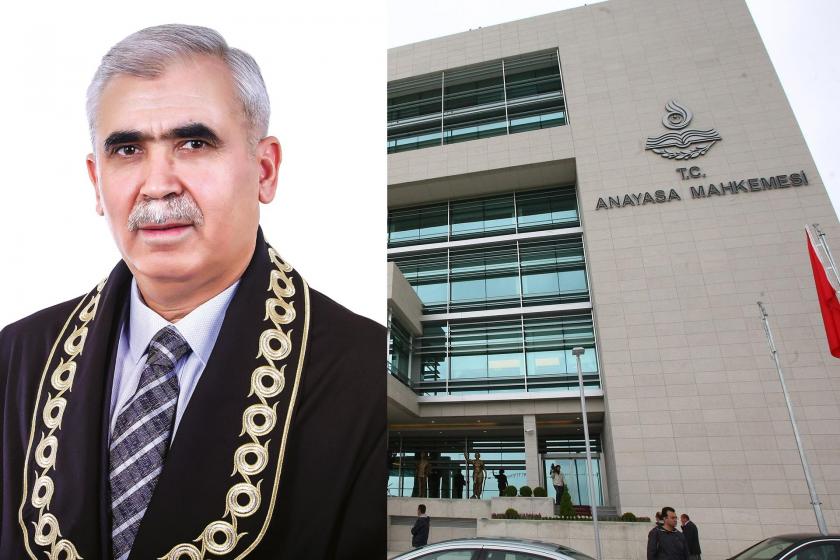Members of Turkey’s Constitutional Court on Thursday elected Kadir Özkaya, who was appointed to the court by President Recep Tayyip Erdoğan in 2014, as the court’s new chief justice, the court has announced.
Özkaya, 61, received the support of the nine out of the 15-member court. His closest rival, Yusuf Şevki Hakyemez, received six votes.
Özkaya will replace Zühtü Arslan, who was elected as a member of the court in 2012 and chief justice in elections at the court held in 2015, 2019 and February 2023.
The term in office of the court’s 15 members is limited to 12 years.
The tenure of Arslan, who took part in Thursday’s voting, will end on April 20.
Özkaya is the first judge to be elected to the post of chief justice among Constitutional Court members appointed by Erdoğan. He has been serving as deputy chief justice since March 2020 and will be able to remain in the position for only two years since his 12-year service expires in 2026.
He had served as a rapporteur for the Constitutional Court between 2005-2011 and a member of the Council of State between 2011-2014 before his appointment as a judge at the top court.
Özkaya’s election as the chief justice has brought his stance in prominent cases to public attention. Although he was appointed by Erdoğan, he has not always adopted the government’s position in political trials. He is seen as a “moderate” figure unlike another court member, İrfan Fidan, who is known for his steadfast support of Erdoğan and was one of the potential candidates to lead the top court.
For instance, Özkaya is one of the judges who ruled that there had been a rights violation in the continued incarceration of opposition lawmaker Can Atalay, who was not released from prison despite gaining parliamentary immunity in the May elections.
Atalay, whose incarceration sparked a crisis between Turkey’s two top courts, is still in prison despite two decisions from the Constitutional Court in his favor, which were defied by the Supreme Court of Appeals and a lower court. He was eventually stripped off his parliamentary status in late January in defiance of the successive rulings by the Constitutional Court.
Yet, Özkaya has voted in line with Erdoğan’s ruling Justice and Development Party’s (AKP) stance in some political cases. For example, he voted against the annulment of a controversial media law that press groups say is used to silence journalists on the pretext of halting the spread of disinformation. A majority of judges ruled against annulling the law in November.
Özkaya’s election comes at a time when there are widespread concerns about the court’s waning authority due to the failure of lower courts to act in line with its rulings like in the Atalay case.
According to Brussels-based lawyer Ali Yıldız, the outgoing Arslan is leaving behind “a paralyzed ‘court’ whose rulings are not abided by and are rebuked by the appeals court” as a legacy.
Zühtü Arslan'ın baskanlıgı sona erdi. Mirası, kötürüm edilmis, kararları uygulanmayan, Yargıtay'dan zılgıt yiyen bir mahkememsi. #AYM #KadirÖzkaya https://t.co/kyijSWPPmY
— Ali Yıldız (@aliyildizlegal) March 21, 2024
The disregard for the Constitutional Court’s rulings in the case of Atalay as well as other politically motivated trials when the court found a rights violation has raised concerns about the rule of law and the separation of powers in Turkey. Critics argue that disregarding the court’s decisions undermines democratic principles and legal certainty.
Concerns about the rule of law and claims of government control of the judiciary reached new heights following a failed coup on July 15, 2016, after which the government launched a massive crackdown on non-loyalist citizens under the pretext of an anti-coup fight and removed more than 4,000 judges and prosecutors from their posts via government decrees.
Many say there is no longer a separation of powers in the country and that members of the judiciary are under the absolute control of the government and cannot make judgments based on law.
In a sign of the deteriorating rule of law in the country, Turkey was ranked 117th among 142 countries in the rule of law index published by the World Justice Project (WJP) in October.

